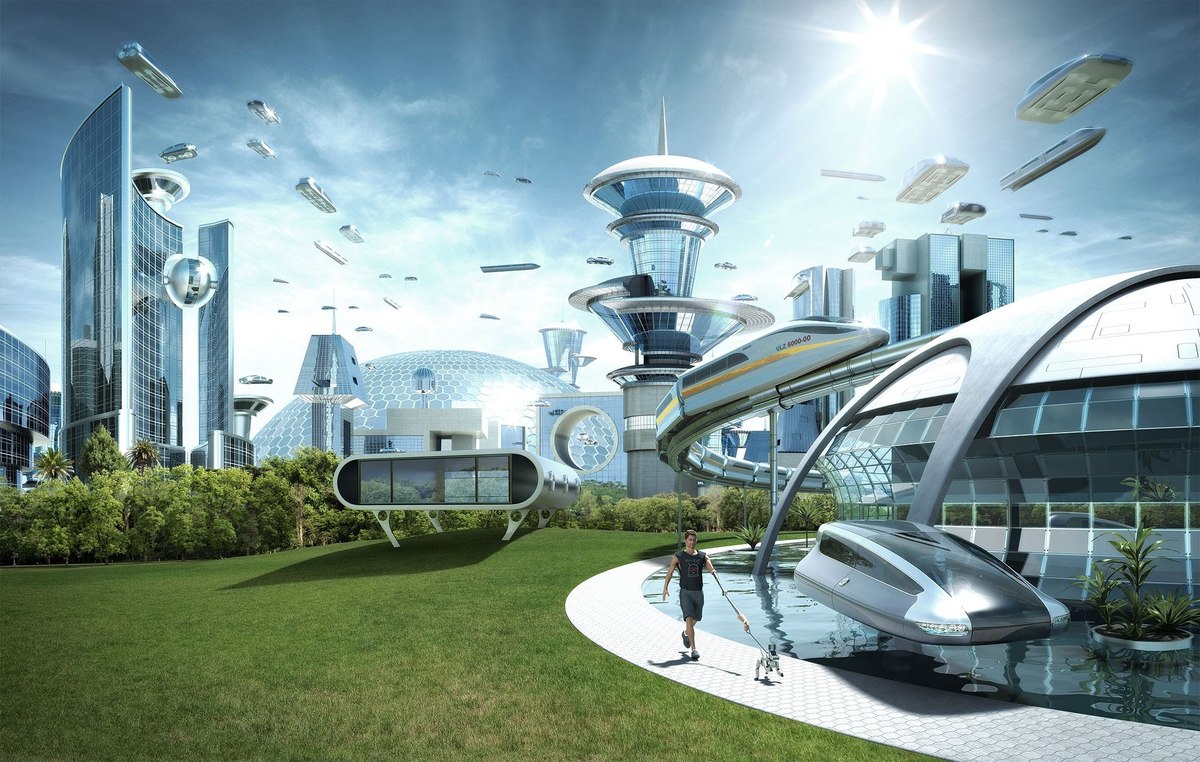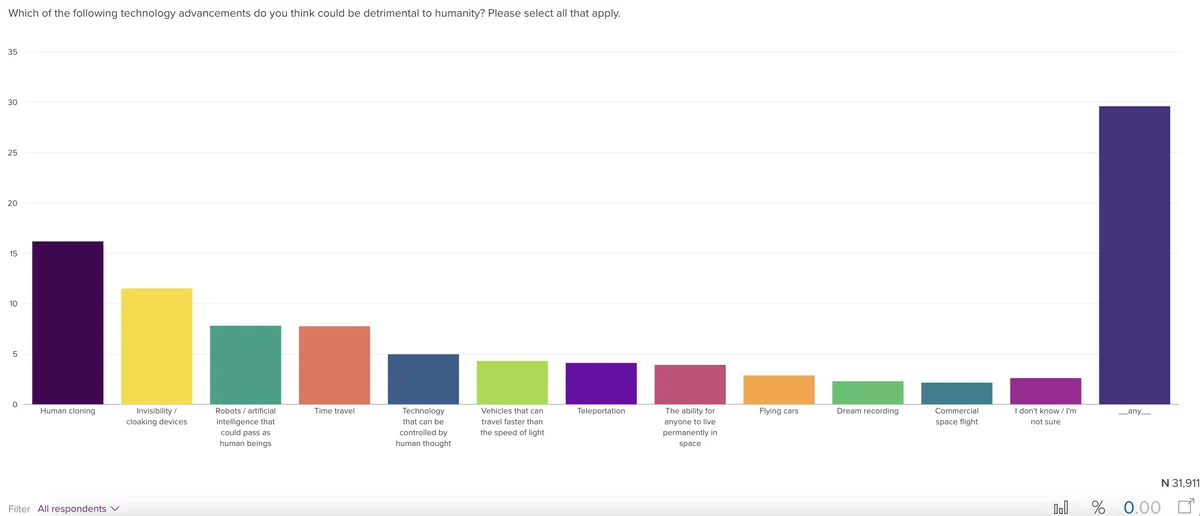
Two in five APAC respondents think commercial space flight will be possible after 2025
Technologies bring us convenience and improve our standard of living. In the past decade, we saw lots of advancements that we probably never thought of before. The emerge of smartphones, mobile applications and social networking, have been a pleasant surprise to many of us. While all these technology advancements might be started by imagination, have you ever thought of the next technology innovation that would totally turn our lives around? YouGov, as one of the world’s leading online research firms, polled 9,443 people across Asia Pacific, to investigate what technologies and/or advancements people would love to see most in the near future. Let’s think out of the box!
Among the nine technologies and advancements polled, commercial space flight, flying cars, and robots / artificial intelligence that could pass as human beings, are considered as the most scientifically possible in the future, with only 6%, 9% and 9% of APAC respondents think it will never happen in real life. Over 40% of respondents even think commercial space flight will most likely to be possible after 2025.
On the contrary, despite the fact that 16% of the APAC respondents would most like time travel to happen in the future, 43% of respondents think it will never become possible in real life. Other advancements that people in APAC would love to see in real life include flying cars (18%), teleportation (12%) and technology that can be controlled by human thought (e.g. mind-controlling a robotic limb, writing a text / SMS message by thinking it) (11%).
In particular, Indonesian has a big desire on flying cars (41%) and robots / artificial intelligence that could pass as human beings (19%), with more than double of the regional average (with 18% and 8%) say would most like these advancements to happen. Interestingly, Aussies hold a different view, with less than half of the regional average are favorable to see flying cars (8%) and robots / artificial intelligence that could pass as human beings (4%) in the future.
Human cloning is considered the most detrimental technology advancement to humanity
We can also see high correlation between people’s desire on technology advancements and how the technology advancements could benefit humanity. When we asked which technology advancements could be beneficial to humanity, technology that can be controlled by human thought topped the list (39%), followed by flying cars (36%), and the ability for anyone to live permanently / indefinitely in space (31%).
However, there are always two sides of a coin. Not all technology advancements are welcomed by APAC respondents. More than half of the APAC respondents (55%) think human cloning could be detrimental to humanity. Other technology advancements that are considered as detrimental to humanity includes invisibility / cloaking devices (i.e. devices that make the user unable to be seen or look like something / someone else)(39%), time travel (26%) and robots / artificial intelligence that could pass as human beings (26%).
While these technology advancements seem far from our reach at the moment, many people don’t think they are just a dream. Almost 20% of APAC respondents think robots / artificial intelligence that could pass as human beings (19%), technology that can be controlled by human thought (18%), commercial space flight (18%), and flying cars (17%), will become scientifically possible by 2025! Let’s all look forward to a better future!

Data was collected from research among YouGov’s panelists and was weighted to be representative of online population. Sample size: Asia Pacific (n = 9,443; Australia: 1,005; China: 1,021; Hong Kong: 980; Indonesia: 1,003; Malaysia: 1,369; Philippines: 1,024; Singapore: 1,050; Thailand: 1,009; Vietnam: 982)